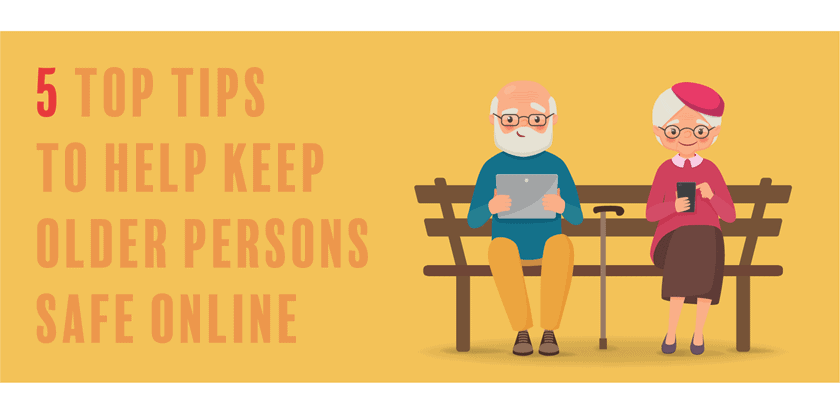In this technologically advanced age, the internet has become a beneficial tool for people of all ages across the globe.
However, it can be easy to forget the issue of cyber security and the unfortunate downfalls that come with this ever increasingly connected world.
Recently we have witnessed a huge increase in the amount of older people online and actively using the internet on a daily basis. They surf online post on social networks, order shopping and get the latest news updates.
With this in mind, and considering that today is the official international day for older persons, we have put together a quick top tips list for keeping safe online.
1. Your passwords should be stronger than superglue

To ensure that your passwords are super secure, a good rule of thumb is to make them as creative (yet memorable) as possible and of course change them regularly. Our advice is to always use a mix of upper and lower case letters and mix in a combination of numbers and symbols. Here are some good examples:
Jw1n,Adttr – Just what I need, Another dumb thing to remember.
B@k2$quR1 – Back to Square one.
Take care of your passwords the same as you would a toothbrush- that is to say never share them or leave them lying around. There are many handy and secure tools like password managers that you can use to store your passwords and keep them safe, if you have trouble remembering them all- which let’s face it is no easy task! Your personal notebook hidden in your top desk drawer is not the place to keep these.
2. Be wary of responding to emails

Always be on high alert for phishing emails- these are fraudulent emails sent by scammers to lure you into believing you owe money, your account has been hacked or to try to emotionally manipulate you into donating to a fictional charity. There have been numerous cases where older people have been targeted and scammed by cybercriminals looking to make a quick buck.
Investment opportunities may seem like a great idea but think twice before sending any cash to someone at the end of an email. Always research very carefully before you invest money into anything online. If you need help in spotting a phishing email please check out our previous blogs on phishing.
3. Be careful what you share

What you post online can be hard if not impossible to take down and remove. Therefore, it’s really important that you think twice before posting anything that could be of benefit to a cyber-criminal. You could be revealing information about yourself without even realising. Keep all confidential information (including any information that relates to passwords you may have for online accounts) to yourself as hackers are always on the lookout for information which could lead to an account hack. You should be wary also of posting any information about holidays as these are mere advertisements for criminals that your house may be unattended.
4. Keep your software up to date

It’s a simple rule but one that often goes overlooked. Update your software regularly. Whenever an update becomes available through your computers notifications you should make sure that your computer is running the latest version. This is because older versions can have security flaws and holes which have been fixed in newer versions but which hackers will target and be on the lookout for. On the other hand, be wary of any emails coming through offering software updates from your software provider as these may be phishing emails.
5. Lock all your devices the same you would your front door

These are open gateways for hackers to get in and steal valuable information such as banking details, account passwords etc. It can be easy to lose a phone or leave a device behind when you are out and about, therefore it’s crucial that any information on these devices is protected as much as is possible. All accounts on your device should be password protected- never allow a device to store and remember your passwords. Also, the device itself should be password protected and locked whenever you have to leave it unattended.
Do you always update your software and lock your devices? Did you find these top tips helpful? Are there any tips you’d like to share to keep safe online?
Leave a comment below!







